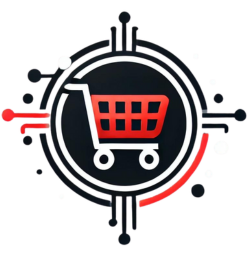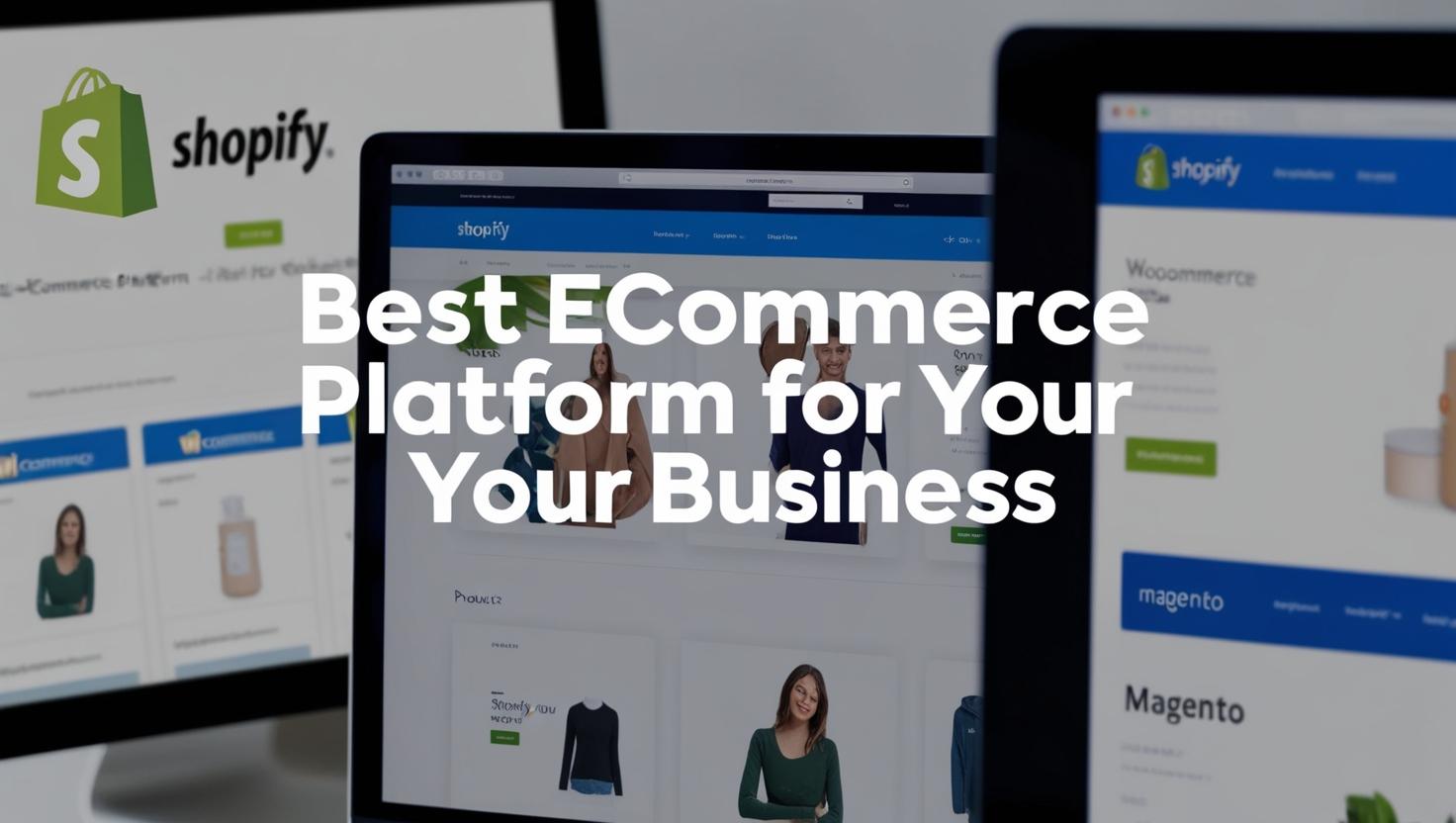Selecting the best Ecommerce platform is crucial. It ensures the success of your online business. From website performance to customer experience to sales conversions and long-term sustainability, choosing the right platform from the countless options available will affect how well your business runs online. A platform that provides a well-optimized solution for your e-commerce store will ensure smooth transactions, secure payments, and powerful tools to grow your brand.
The ecommerce market has been competitive, and choosing the right platform allows you to stay ahead. A platform that aligns with the goals, budget, and technical requirements will get your business to new heights of ecommerce success whether you are a startup, running a small business looking to expand, or an enterprise-level company looking to reach new heights. This guide will help you find the best ecommerce platform for the sustainable growth of your business.
Key Factors to Consider When Choosing the Best Ecommerce Platform
The best e-commerce platform is one that is the right fit for your business instead of going with the trend or the popular one. Every platform comes with its own set of features, pricing, and customization options. This makes it crucial to understand what matters the most for your business, saving you time, money, and any potential future headaches that come as a drawback.
Multiple factors should be considered when choosing an e-commerce platform for your business. From ease of use to enhanced scalability, payment gateways, and security, your chosen platform should help your business grow and provide customers with a seamless shopping experience. SEO tools, mobile responsiveness, and third-party integrations also significantly improve your store’s performance and visibility, helping you achieve impressive sales figures. In this guide, we have highlighted some of the best ecommerce platforms to enhance sales, customer satisfaction, and brand value for your business.
Best Ecommerce Platforms in 2025
In this section, we have highlighted the six best Ecommerce platforms in 2025, with what features they offer and what makes them best for your business. This ensures you choose the right ecommerce platform to reach new heights of success when running an online store.
1. Shopify – Best for Ease of Use and Dropshipping

Shopify has over 2.1 million daily active users on average, earning it a spot amongst the best ecommerce platforms in 2025 with the best-converting checkout on the internet. Below are highlights of some of the pros and cons of Shopify:
Pros:
- The user-friendly interface of Shopify makes it highly suitable for startups and small businesses.
- With over 1000 integrations, Shopify is an extensive app marketplace
- The multichannel integration supported by Shopify allows sales across various other platforms.
- With over 100 supported payment gateways, ensure online transactions are seamless for customers.
Cons:
- If not using the Shopify gateway, transaction fees may apply.
- When switching themes on Shopify, Formatting inconsistencies may arise.
Pricing: Starting at $5 per month.
2. WooCommerce – Best for WordPress Users
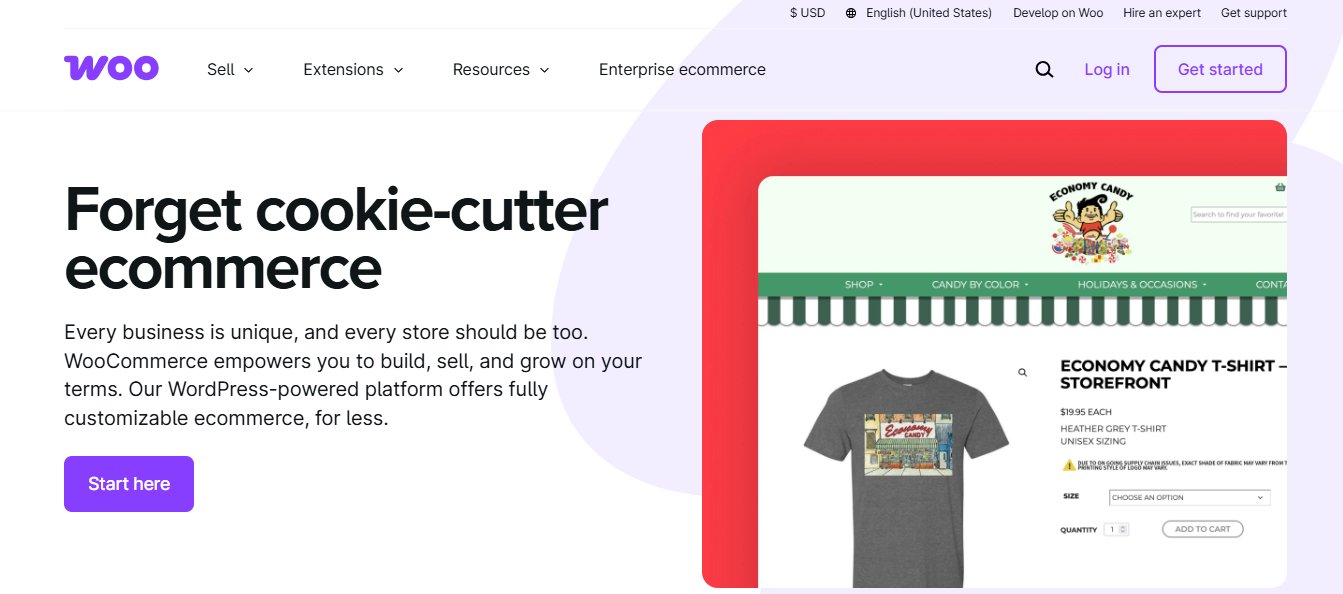
With over 43% of the internet running on WordPress, WooCommerce can quickly transform your website into a fully functioning online store, offering high flexibility and customization.
Pros:
- Can be easily integrated with WordPress, allowing your site to benefit from its vast plugin ecosystem.
- Can be highly customized, making it a perfect fit for business needs.
- The open-source nature of WooCommerce allows extensive modifications.
Cons:
- WooCommerce requires a WordPress site, making it complex for non-WordPress users.
- May sometimes require technical knowledge to set up and manage ecommerce store.
Pricing: Free to install, but additional costs will be added for hosting and premium extensions.
3. Magento (Adobe Commerce) – Best for Large Enterprises
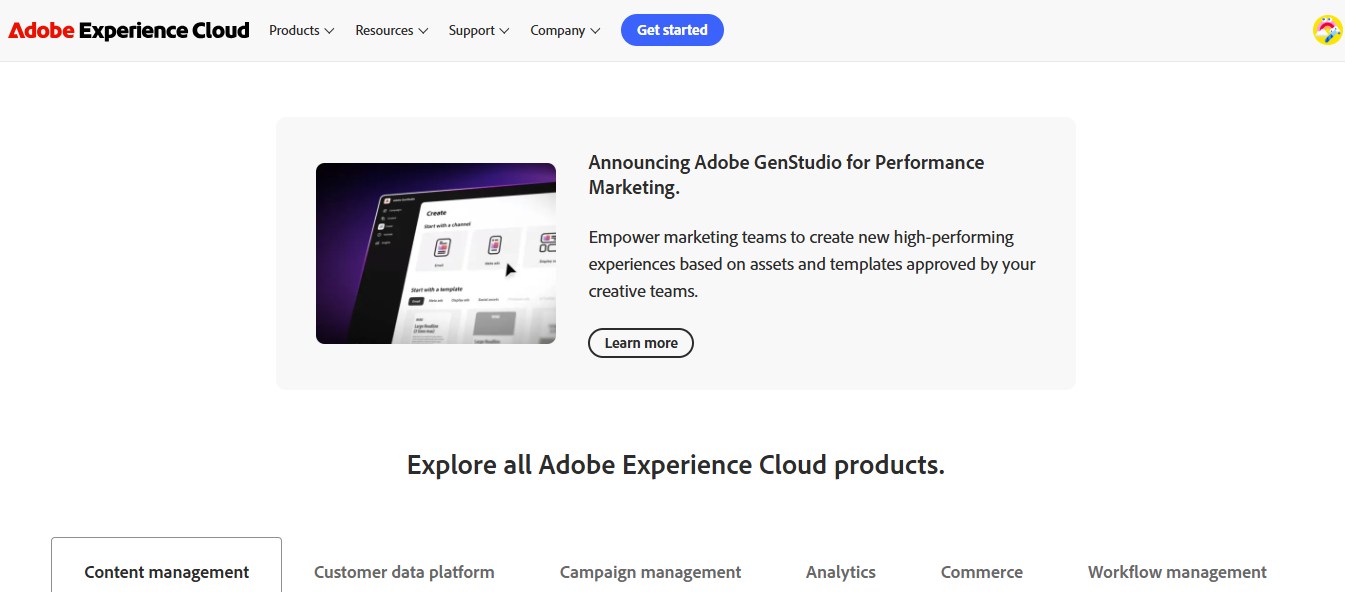
Adobe Commerce is the best ecommerce platform for large enterprises that require advanced customization and scalability.
Pros:
- Offers high customizability with vast amounts of features for ecommerce stores.
- Supports multiple stores and languages.
- Strong community support and a plethora of extensions.
Cons:
- The high customizability makes the learning curve a lot steeper
- The development and maintenance costs are high.
Pricing: Pricing starts at $29.
4. BigCommerce – Best for Scaling Businesses
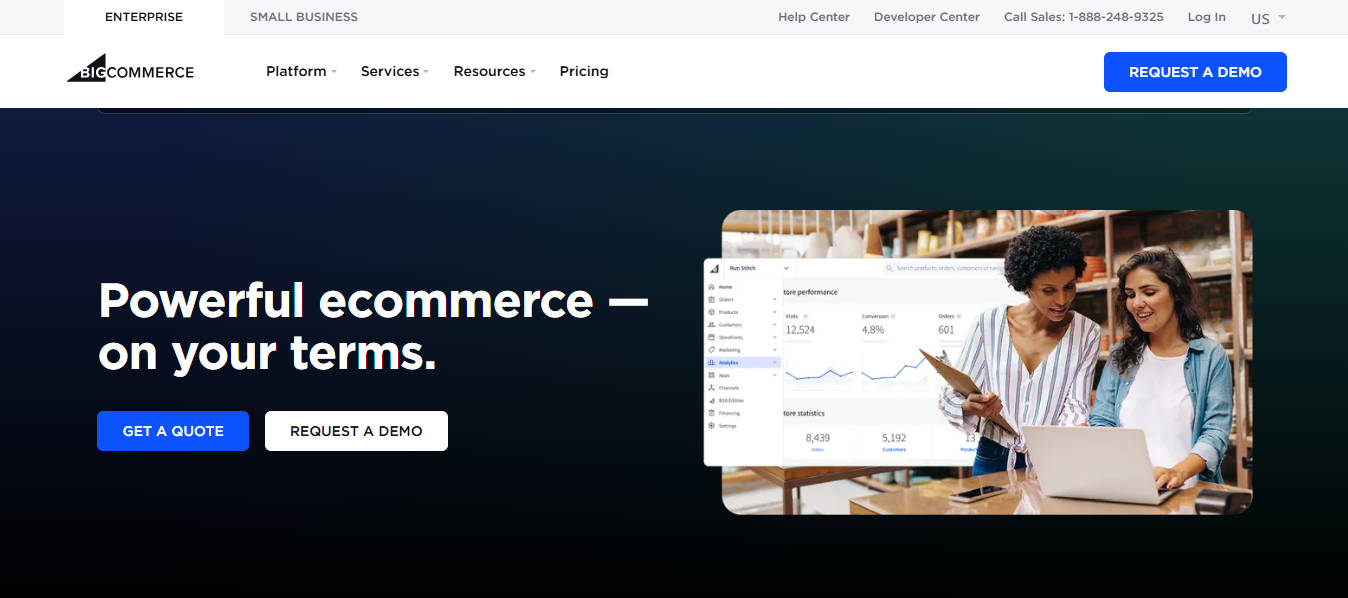
BigCommerce is ideal for businesses that are looking for growth. Its built-in SEO tools, multi-channel selling, and a variety of design options make scaling up your business a lot easier.
Pros:
- No Transaction fees on any type of plans
- BigCommerce supports a wide range of multichannel selling while integrating significant marketplaces.
- The wide range of built-in features offered by BigCommerce reduces the reliance of businesses on third-party apps.
Cons:
- The wide range of features offered makes learning its interface a lot harder.
- Annual sales thresholds may require plan upgrades.
Pricing: Businesses can customize pricing based on their requirements.
5. Wix eCommerce – Best for Small Businesses and Startups
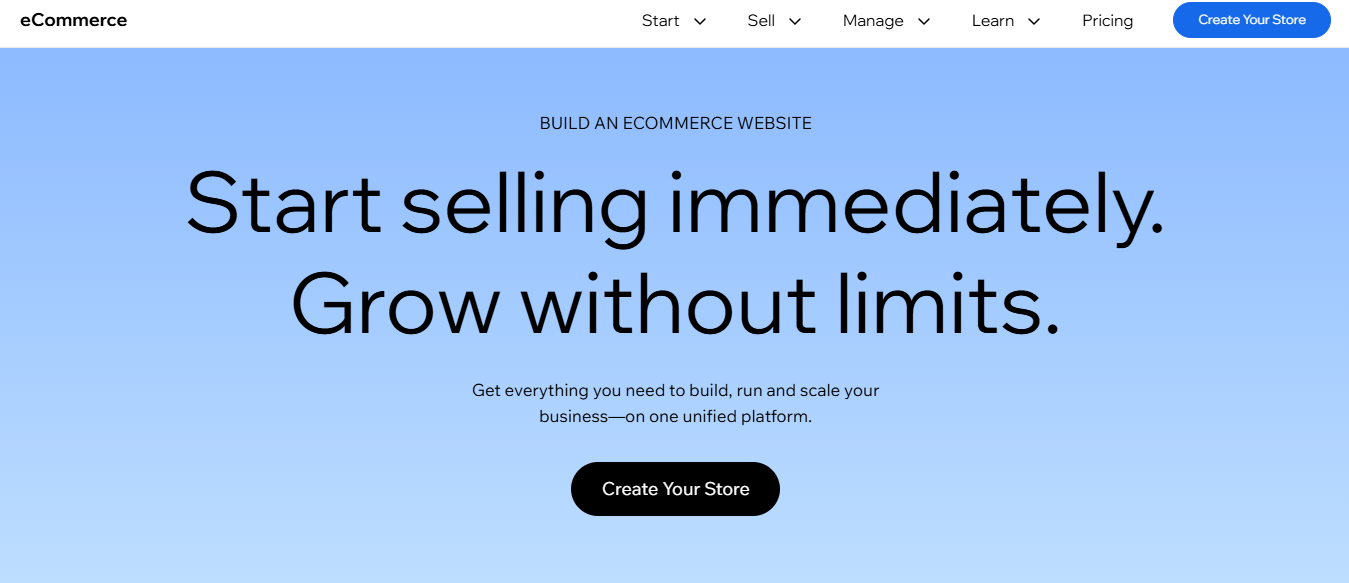
The comprehensive set of design tools provided by Wix ecommerce, with its easy-to-understand user interface makes it ideal for small businesses and startups.
Pros:
- A comprehensive set of design tools
- Easy-to-understand interface for users
- Unlimited trial period
- Get great customization options
Cons:
- Not great for large enterprises due to its limited scalability
- Additional apps may be required to access advanced functionality for eCommerce
Pricing: Plans start at $16 per month.
6. Square Online – Best for Brick-and-Mortar Integration
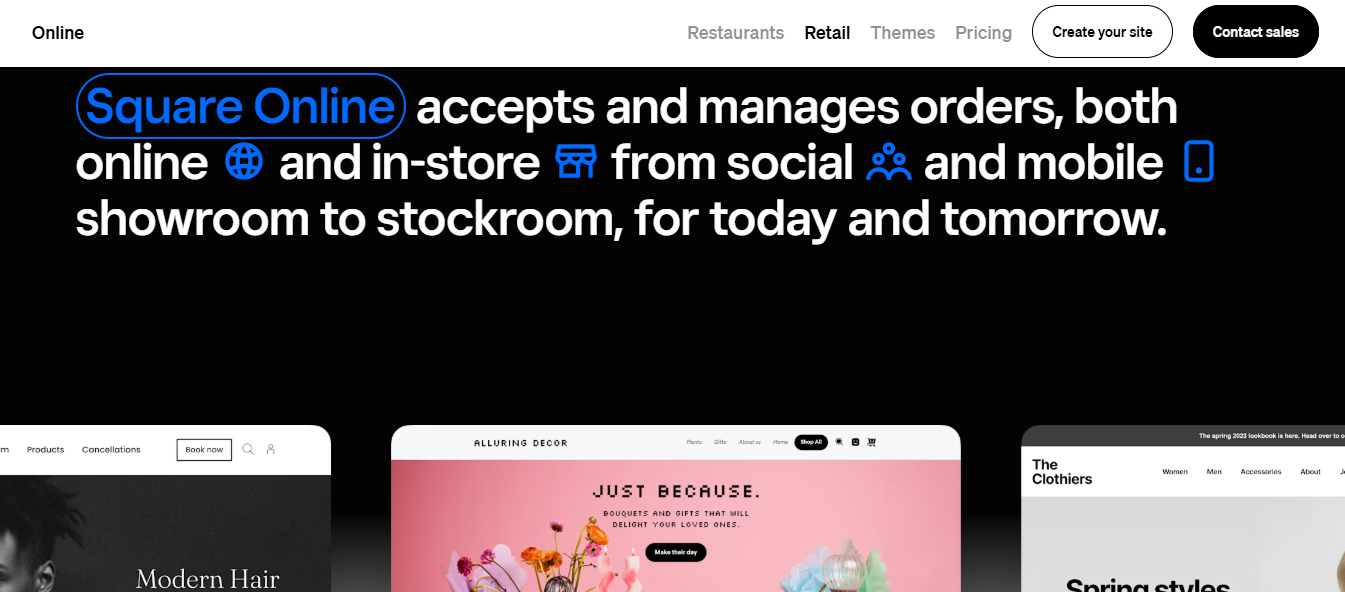
Square Online is the best eCommerce platform for businesses that are already running a physical store. The seamless integration of Square’s POS system with your physical store makes managing online and in-person sales a lot easier.
Pros:
- Free plan with basic features available for businesses that are new in eCommerce.
- Smooth integration with Square POS systems.
- The free plan offers unlimited products for the users
Cons:
- Limited customization options
- To use advanced features, premium plans are required
Pricing: Free plan and premium plan starting at $12 per month
Conclusion
Picking the right ecommerce platform in 2025 comes down to what your business needs, how much money you have, and your plans to grow. Platforms such as Shopify, WooCommerce, and Adobe Commerce have unique features that are right for different kinds of businesses. The main thing? Find one that makes buying and selling smooth, keeps things safe, can grow with you, and helps with marketing. By looking closely at your choices, you can create a solid base for lasting ecommerce success.
